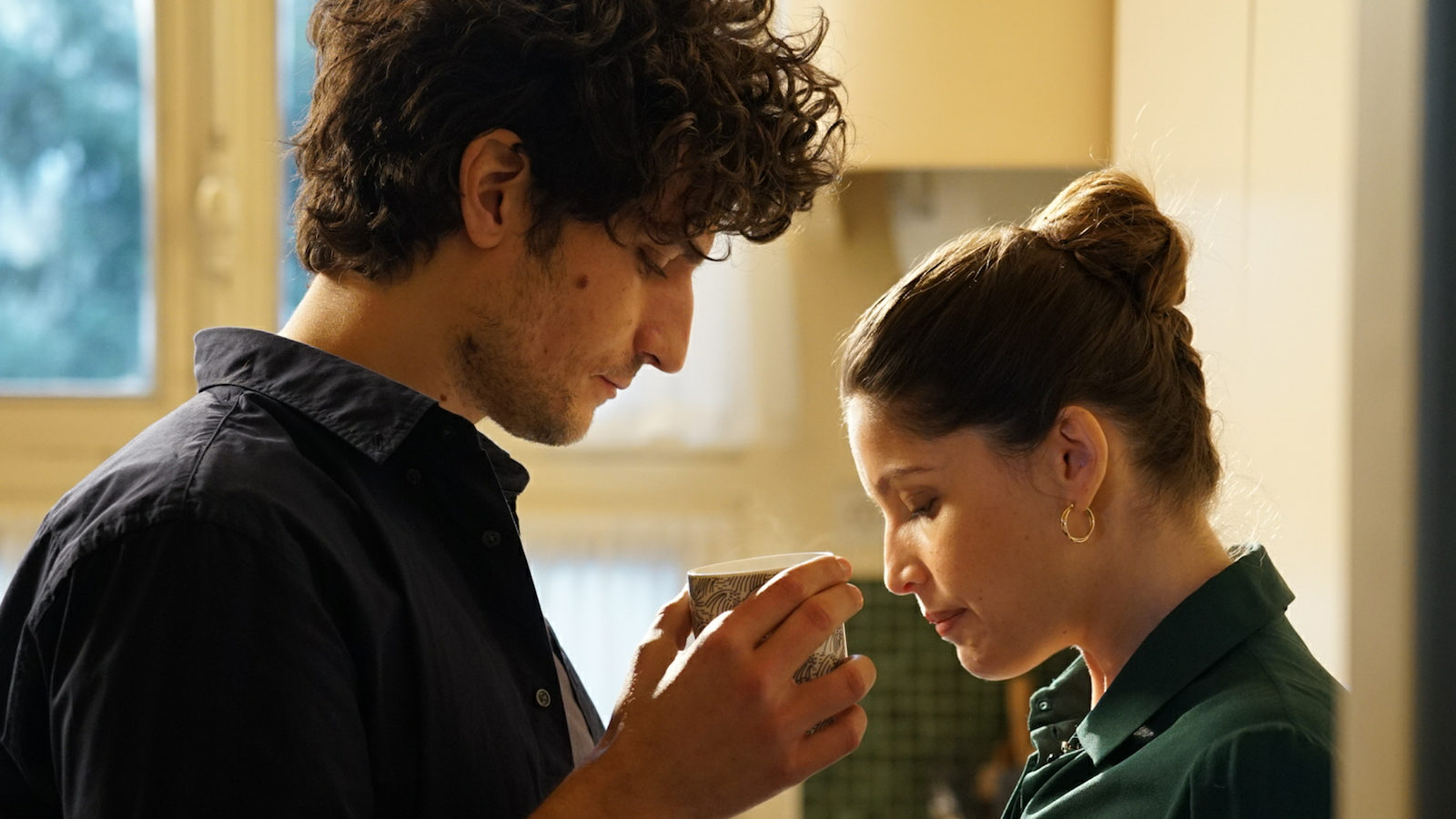
An innocuous trifle, Louis Garrel’s sophomore feature “A Faithful Man” follows a love triangle between dopey journalist Abel (Garrel), his old flame-turned-widow Marianne (Laetitia Casta), and her late husband’s younger sister Eve (Lily-Rose Depp). Abel hooks back up with Marianne after she left him for another man nine years prior, but when they get back together, Abel has suspicions about the true nature of her husband’s death, irresponsibly spurred by her scheming young son Joseph (Joseph Engel, a funny newcomer). Meanwhile, Eve has longed for Abel since she was a young girl and finally decides to go to war with Marianne for his affections, teaming up with Joseph to help secure her man.
Besides a few funny jokes, “A Faithful Man” is a non-entity with little formal interest whatsoever. Garrel works in an interesting emotional register somewhere between cautiously earnest and pointedly indifferent, but there just isn’t enough substance to elevate his tale of fractured desire above a mere curiosity. Plus, whatever substance lies in “A Faithful Man” feels at best like a silly male fantasy, and this is coming from someone who has a lot of patience for silly male fantasies, at least when they’re approached properly. Garrel treats the idea of two women in love with the same man like it’s a bewildering concept, which would be more than a little arrogant even if he didn’t play the man in question. Furthermore, the characterizations are particularly hollow and self-flattering, especially for both of the women—Marianne, deceitful and secretive; Eve, lovesick and doting. There’s nouvelle vague voiceover and occasional perspective changes, but most everything in “A Faithful Man” exists on the surface. For a 75-minute film about very beautiful people being very beautiful with each other, maybe that’s enough.

RogerEbert.com’s own Glenn Kenny covered Olivier Assayas’ new film “Non-Fiction” at the Venice Film Festival where it had its world premiere. He accurately describes it as a “sex comedy,” one where every character occasionally frets about infidelity but commits to sleeping around anyway. Alain (Guillaume Canet), a middle-aged book publisher is sleeping with his firm’s new digital consultant Laure (Christa Théret), who wishes to overhaul the whole idea of reading for the 21st century even though Alain has his doubts. Meanwhile, Alain’s wife Selena (Juliette Binoche), a TV actress playing a cop (or crisis management expert) on a popular show, is sleeping with shlubby novelist Léonard (Vincent Macaigne, the cast standout), whose latest novel has caused online controversy about its scandalous autobiographical elements. Assayas handles the whole situation like a no-stakes farce. Everyone has their fun and no one really gets hurt.
“Non-Fiction” features Assayas working in a generally staid mode, relying less on camera movements and more on dialogue and performances. In “Non-Fiction,” Assayas thoroughly examines digital’s takeover of the arts via contemporary fiction. There’s a lot of talk about Kids Today and how they don’t read as much, or perhaps they are reading but the mechanisms and mediums have changed. Are paperbacks inherently better than e-books? Does Twitter affect art’s reception or is it just a more concentrated, immediate version of how it’s always been? Are things really changing or is it just a slightly modified version of the past?
I share many if not all of Assayas’ anxieties about the endless march of modernity, and I find it heartening that he doesn’t turn “Non-Fiction” into a screed. He’s genuinely interested in all sides of the debate and isn’t looking for answers so much as constantly asking questions. At the same time, “Non-Fiction” still feels dry and didactic even if it resists a thesis. I can’t figure out if the problem is the film or with me, if only because I’m sympathetic to the ideas and I’m predisposed to like dialogue-heavy films about heady topics. I’m still going back and forth on it as I write this, but suffice it to say, “Non-Fiction” has made me think more than the majority of the films I’ve seen this year at TIFF. Plus, it has a really funny running joke about Michael Haneke. Sometimes that’s enough to keep you going.
Vikram Murthi is a freelance writer and critic currently based out of Chicago, IL. He writes about film and television for RogerEbert.com, The A.V. Club, and Vulture. He previously was a chief film critic at Movie Mezzanine and a news writer for IndieWire. You can follow him on Twitter @fauxbeatpoet.





